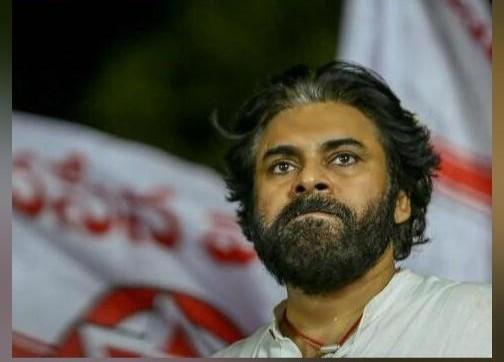
Like PM, Kalyan switches to English while speaking on J&K attack
The recent terror attack in Pahalgam, Jammu and Kashmir has sent shockwaves across the nation, leaving everyone in a state of grief and outrage. As the country’s leaders condemn the heinous act and offer condolences to the families of the victims, some have chosen to make a deliberate statement by switching to a different language while speaking about the incident. Two prominent leaders, Andhra Pradesh Deputy CM Pawan Kalyan and Prime Minister Narendra Modi, have recently made such a switch, and it has sparked a lot of attention.
In a recent speech, Pawan Kalyan, who is also an actor and the founder of the Jana Sena Party, began speaking in Telugu, the official language of Andhra Pradesh. However, as he continued to address the Pahalgam attack, he switched to English mid-speech. In his words, “The…attack has been one of the darkest days in entire country.” This sudden change in language was not a mistake, but a deliberate choice made to convey a strong message.
Kalyan’s decision to switch to English may have been inspired by Prime Minister Narendra Modi, who did the same thing during his address to the nation. Modi, who is known for his powerful speeches, spoke in Hindi initially, but as he condemned the attack and vowed to take strong action against terrorism, he switched to English. His message was clear: India will not back down in the face of terrorism, and it will fight back with all its might.
The decision to switch to English during a speech is often seen as a way to convey a sense of internationalism and to reach a broader audience. In the context of the Pahalgam attack, it serves as a reminder that terrorism is a global problem that requires a collective response. By using English, leaders like Modi and Kalyan are able to connect with people from different parts of the world, emphasizing that India is not alone in its fight against terrorism.
Moreover, switching to English can be a powerful way to convey a sense of urgency and gravity. When leaders speak in their native language, there is a risk that the message may not resonate with everyone, particularly with those who do not speak the language. By switching to English, they can ensure that their message is heard clearly and understood universally.
The Pahalgam attack, which left several people dead and injured, has raised concerns about the growing threat of terrorism in India. The incident has also highlighted the need for greater coordination and cooperation between different agencies and governments to prevent such attacks in the future. As leaders like Modi and Kalyan continue to condemn the attack and pledge to take action, their decision to switch to English during speech serves as a reminder that the fight against terrorism is a global effort that requires a united response.
In conclusion, the decision of leaders like Pawan Kalyan and Narendra Modi to switch to English during their speeches on the Pahalgam attack is a deliberate choice that serves to convey a strong message about India’s commitment to fighting terrorism. By using English, they are able to connect with people from different parts of the world, emphasizing that India is not alone in its fight against terrorism. As the country continues to grapple with the aftermath of the Pahalgam attack, leaders must continue to work together to prevent such incidents in the future and to ensure that those responsible are brought to justice.
Source: https://youtu.be/hl6_hZOnkFA






